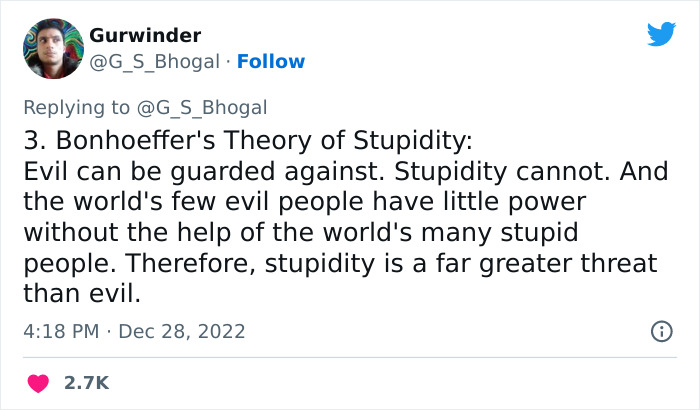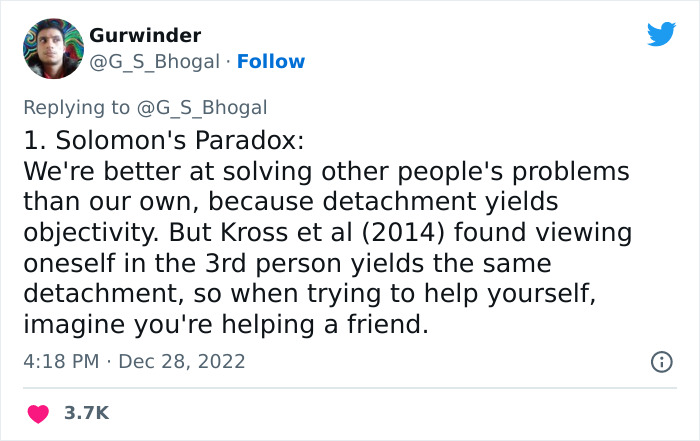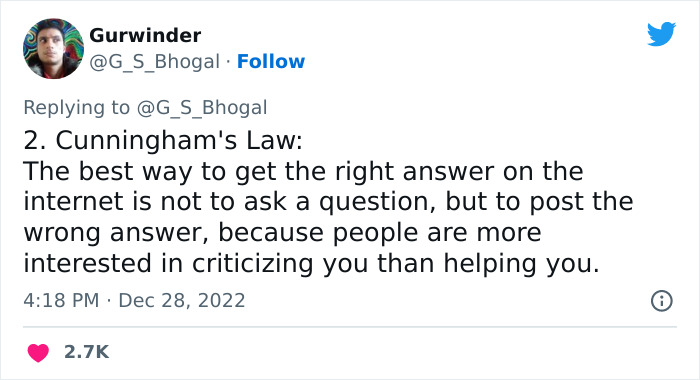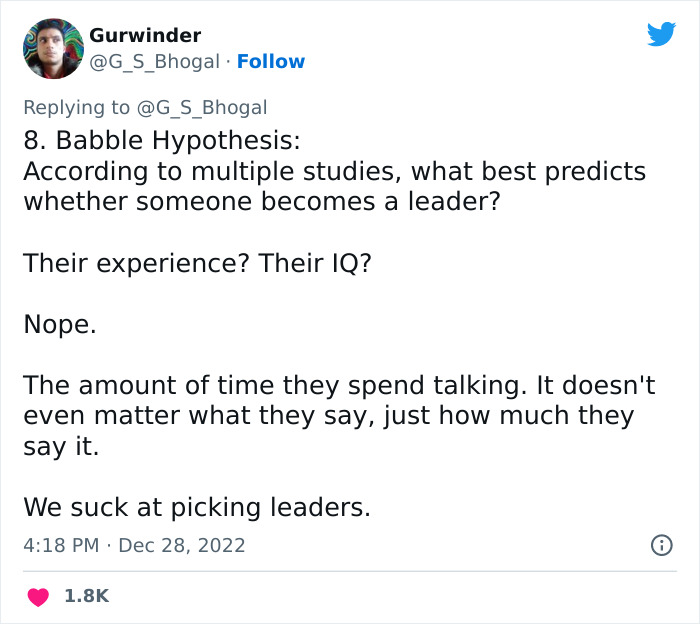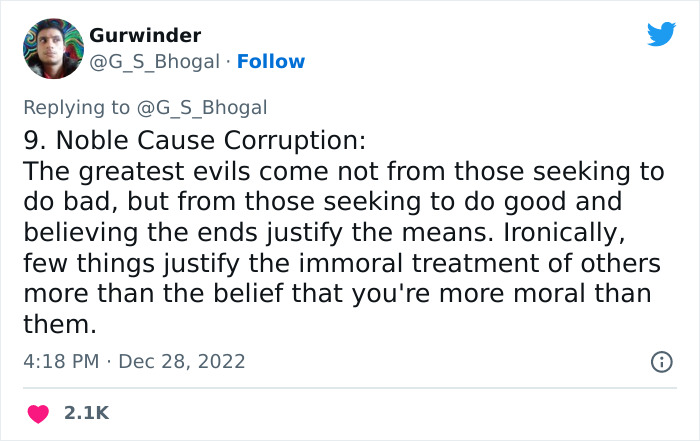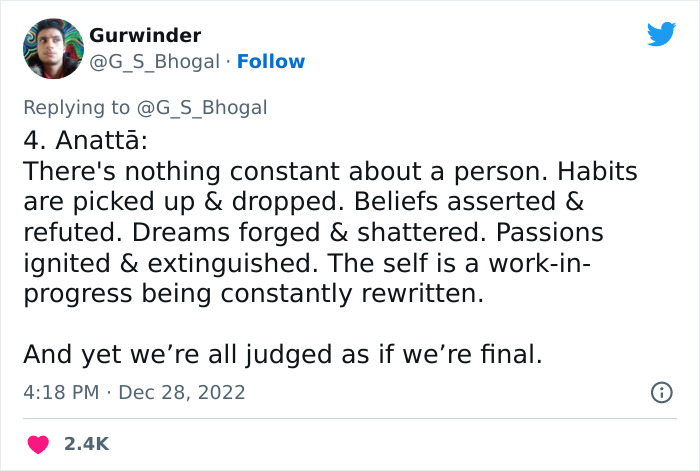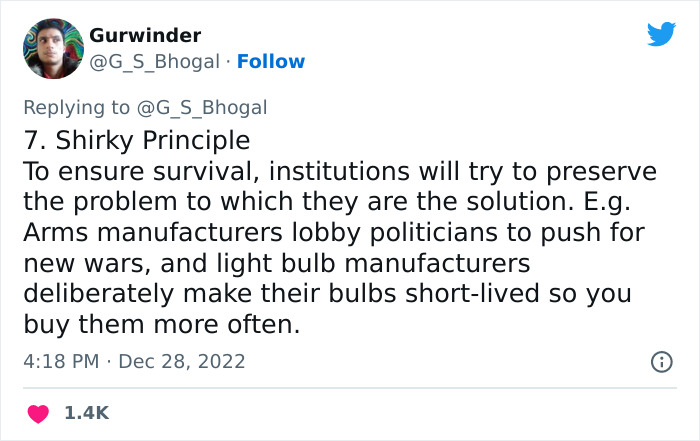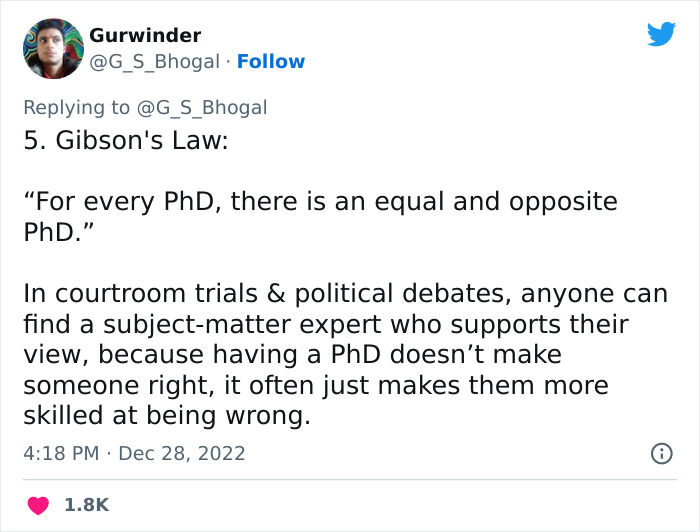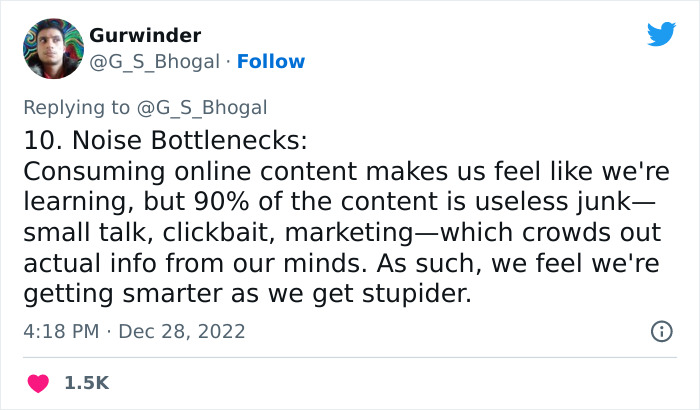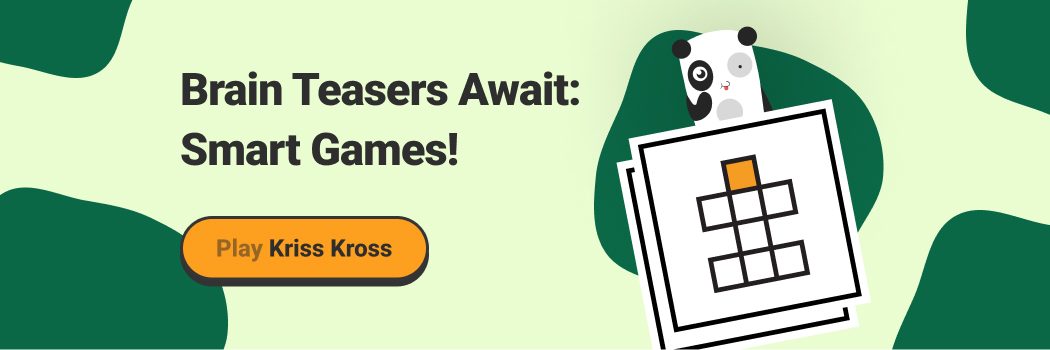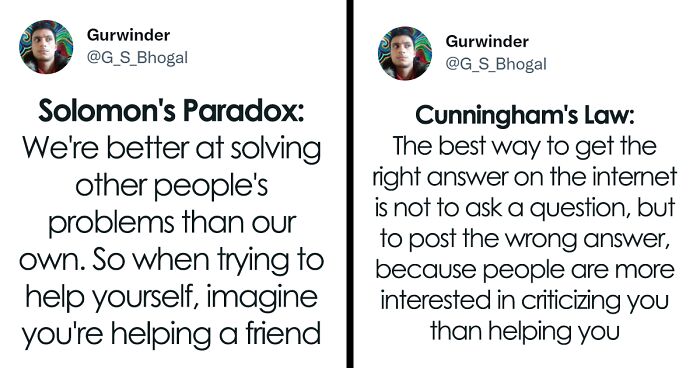
“In 2022 I Learned Hundreds Of Useful Concepts That Improved My Understanding Of The World. Here Are The 10 Best”
Interview With AuthorMany of us are constantly searching for pearls of wisdom that might help us make sense of the world and improve our lives. Even if just a little. However, great insights aren’t found exclusively in dusty and arcane tomes, in a shadowy nook of some ancient library. You can find powerful concepts on social media, too. You just need to know who to follow.
For instance, writer Gurwinder Bhogal, aka @G_S_Bhogal, recently went viral after sharing 10 of the most useful concepts that he learned last year that improved his understanding of the world. You’ll find them below.
We reached out to Gurwinder with a few questions about standing out with one's writing and what other concepts nearly made it into his viral thread, and he was kind enough to answer them. Read on for the insights he shared with Bored Panda.
When you’re done reading through this article, you can take a peek at Bored Panda’s earlier feature of Gurwinder’s ideas right over here. Meanwhile, if you found the writer’s ideas as fascinating as we did, consider following him on Twitter and Substack.
Gurwinder is a popular writer who shares incredibly interesting ideas and concepts with his followers

This post may include affiliate links.
Bored Panda was curious how Gurwinder decided on his top 10 concepts, as well as what other ideas nearly made it into his list.
"I decided the concepts based on what I found most memorable, as this seemed to be a good indicator of notability," he told us.
"There were many others that were close to getting into the top 10, such as Audience Capture, Twyman's Law, and the Paradox of Unanimity," the writer said.
It can be incredibly easy for your voice to get lost among the noise on social media. We were interested to get Gurwinder's take on how writers can stand out from the crowd on Twitter and Substack, as well as what keeps him passionate about writing and teaching others.
"Write what you most want to write about rather than what you think other people want to read. This is because, if you're passionate about something, you can make even the most boring subject interesting, but if you're chasing popular trends, you'll be doing the same thing as millions of other writers, while struggling to maintain the interest to consistently create compelling content," he explained that writers ought to be honest with themselves and ignore the crowd. Do what you're passionate about, not what you hope will make you popular.
"Writing is as much about teaching myself as teaching others. It's not just that I learn while researching topics to write about, it's that the very act of expressing myself in words teaches me things about myself that I didn't know. I therefore see writing as a form of personal growth," he told Bored Panda.
Bored Panda also got in touch with Ariane Sherine, a comedy writer, Twitter blogger, and the author of 'The How of Happy.' We had a chat with her about writing persuasively and grabbing readers' attention on social media. She also shared her advice to help improve people's lives in the Digital Age (spoiler warning, stay away from screens as much as you can!).
"Try and offer fresh, original content that’s entertaining," she explained what writers can do to stand out from the crowd on Twitter.
"If it’s informative too, so much the better. People are looking to laugh and be surprised. They’re also looking for wisdom they can use in their daily lives," Ariane told us.
Meanwhile, we wanted to get Ariane's opinion on how people can improve their lives and be happier, here and now. The author of 'The How of Happy' shared some great insights on what everyone ought to focus on first and foremost.
"Spend as much of your life as possible away from screens. We weren’t designed to stare at them—especially not constantly," she told Bored Panda.
"If this is only a few waking hours a day, as it is for me as I write and program music, then make sure you spend those hours being active, ideally outdoors in the fresh air. See friends, clean and tidy your home, exercise and live at least some of your life offline!"
Ariane added that taking positive action in the direction of your goals "can improve life almost instantly."
I think it should be more clearly taught at a young age -- "The Ends Do Not Justify The Means". . . . . . . . . . . . . . . . . . . . . . . . . . . . . . . . . . . . . . . . . . . . . . . . . . . . . . . . . . . . . . . . . . . . . . . . . . . . . . . . . . . . . . . . . . . . . . . . . . . . . . . . . . . . Ex: This means police should not plant evidence on someone they, "know is a criminal" to remove them . . . from society, if they can't do it legally. . . . . . . . . . . . . . . . . . . . . . . . . . . . . . . . . . . . . . . . . . . . . . . . . . . . . . . . . . . . . . . . . . . . . . . . . . . . . . . . . . . . . . . . . . . . . . . . . . . . . . . . . . . . . . . . . . . . . . . . . . . . . . . . . . . . . . . . . . . . . . . . . . . . . . . Current US Politics by Republicans is an example of, "Noble Cause Corruption". . . . . . . . . . . . . . . . . . . . . . . . . . . . . . . . . . . . . . . . . . . . . . . . . . . . . . . . . . . . . . . . . . . . . . . . . . . . . . . . . . . . . . . . . . . . . . . . . . . . . . . . . . . . . . . . . . . . . . . . . Ex: Doing what they absolutely know is wrong (doing what they wouldn't tolerate in others) to benefit . . . . . . themselves ... (1) Mitch McConnell packing the Supreme Court. (2) Trump and Eastman claiming the . . . . . Vice President can select the next US President instead of just reading the election results. . . . . . . . . . . . ---> As the OP stated, this is, "immoral treatment of others".
Gurwinder has been tweeting interesting ideas about life since joining the social media platform in November 2014. Since then, he’s amassed over 113.7k followers.
His recent thread, featuring the top 10 concepts that he’d learned in 2022, got a ton of attention from other internet users. The writer’s thread was viewed 1.9 million times and got 10.7k likes.
Moreover, he shared the same concepts on his Substack page, along with the links to all of the relevant sources, explaining each concept in a bit more depth. It’s informative. It’s entertaining. And it’s making us feel like we’ve got a more firm grip on human psychology and what reality is like in the 2020s.
I read that the human body's cells are completely renewed in 8 years, meaning we are literally new matter. The only exception is brain cells. We wouldn't have any memories if they switched out. From this we can deduct that humans are nothing but our memories.
Some of you Pandas might have heard about a few of these concepts before. How you use all of that information is up to you. For some, it’s just something cool to share with their friends. For others, it’s a fresh new perspective that might change their approach to life.
For example, Gurwinder’s point about surrogate activities, artificial struggles, and why we have Twitter culture wars is utterly fascinating. It’s something that many of us probably realized independently, but it’s great to see it spelled out succinctly: “The mind wants peace, but needs conflict.”
The writer notes on his Substack page that there’s no shortage of information, however, there is “a shortage of information about how to consume information, and how to act on it.”
He explains the problem: “Without this meta-knowledge, all the data in the world is of little use, because it'll be distorted by your biases, reshaped to fit your existing beliefs, and misapplied to rationalize your basest behaviors.”
That’s why the writer does what he does. He tackles these concepts, biases, and issues with life in the Digital Age in a very easy-to-understand way, in order to make the world a better place.
“I have seen the causes and the effects. As a former web developer, I understand how tech companies use information to manipulate people online. And having spent years stalking and studying one of the deadliest terrorist groups in the West, I have witnessed first-hand how dangerous delusions spread from mind to mind,” he explains his motivation for blogging.
“Bringing these two strands of experience together, this blog is my attempt to describe the myriad ways in which technology and psychology conspire to fool us, and to explore how we can withstand the covert assault on our senses.”
Individuals do this too. Managers avoid teaching the people they supervise relevant skills, so they can remain one step above them on the hierarchy. The problem is, their bosses have the same mentality, and this weakens the whole system. (Example: Russian Military).
We’ve noted before on Bored Panda just how important media literacy is in this day and age. We need to be aware of things like the idea that the more often we hear something, the more plausible we think it is. However, repetition doesn’t mean that something is necessarily true. It’s how misinformation and propaganda can spread.
To counter that, you need to be able to differentiate between trusted and disreputable sources of information. No sources will get everything 100% right, but that doesn’t mean that all outlets are equal. Prioritize sources that do investigative journalism instead of repeating what others write. Check if the story is copyrighted, whether it’s dated, what the author’s track record is like, and if the information seems plausible. If something feels iffy, try to do a bit of background research before resharing the story on social media.
This has historically been known as arguing from authority. It is a logical fallacy. We just don't teach logic anymore. It is one of the problems with our university system. Going to university MAY make you more knowledgeable. It is not a guarantee of being wise or right.
It is absolutely essential to be aware of how (dis)reputable a source is, considering how quickly information spread on the internet, whether it’s true or not.
The concepts that the writer blogged about are absolutely interesting. There’s no doubt about it. But they probably won’t drastically change your life if you first don’t have the basics all sorted out.
What is your diet like? Are you eating well? How much movement are you getting every day? Do you get enough sunlight? What is your social and romantic life like? Do you purposefully take time off from using tech? Are you making good financial decisions and do you have a creative outlet to supplement your career? These are the fundamentals that you should consider working on while you’re learning about all the interesting concepts that awesome writers bring up on social media.
Which of the concepts that Gurwinder shared blew your minds the most, dear Pandas? Which of these ideas were you aware of before? Are you going to change how you live your life after reading this Twitter thread? Tell us all about it in the comments! We’d love to hear from you.
Here's how some internet users reacted to the writer's informative thread
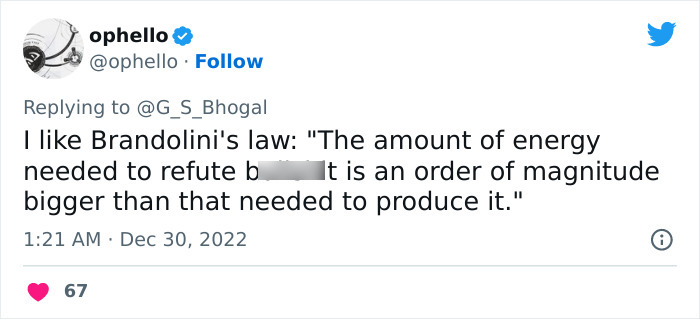

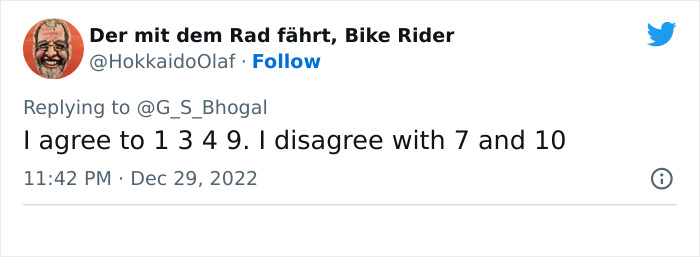
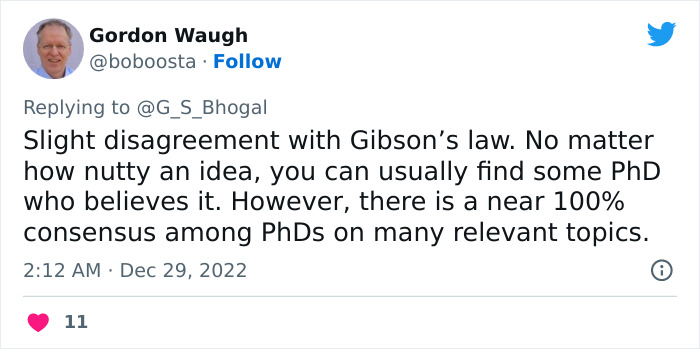
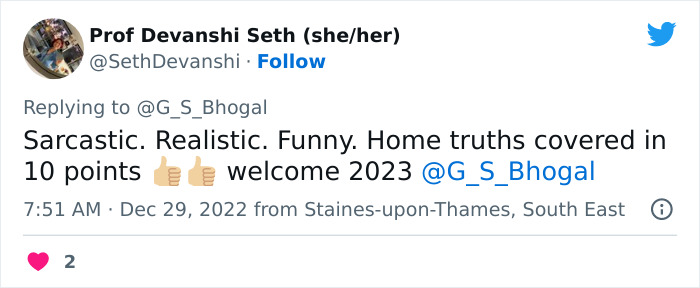
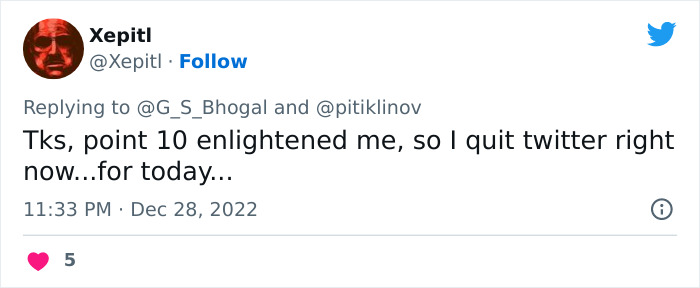
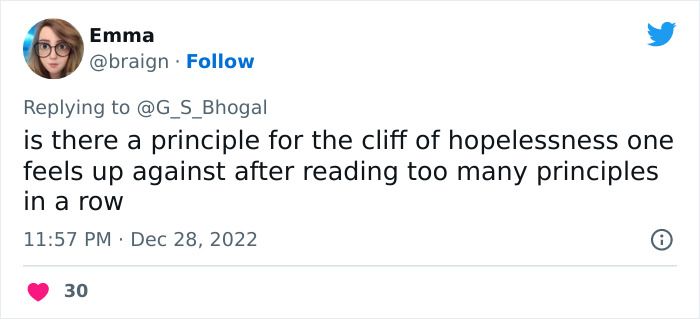
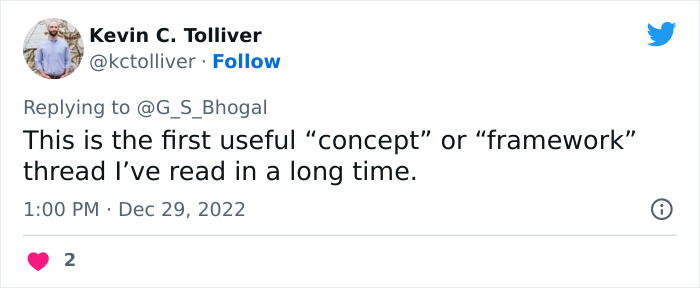
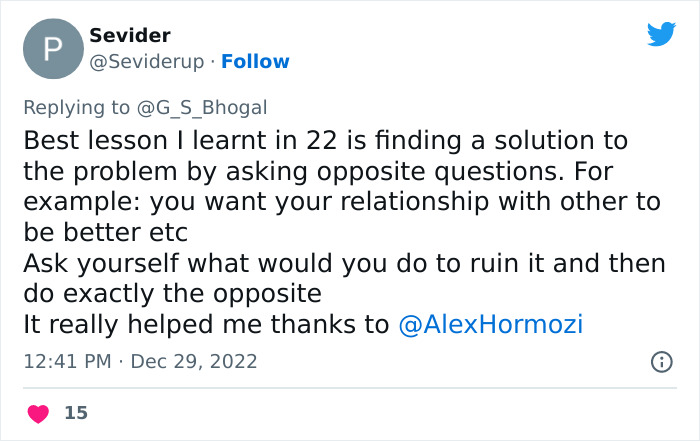
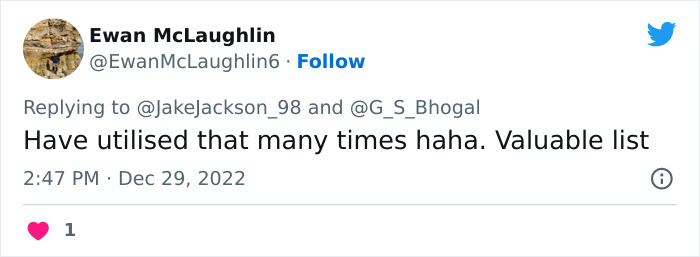
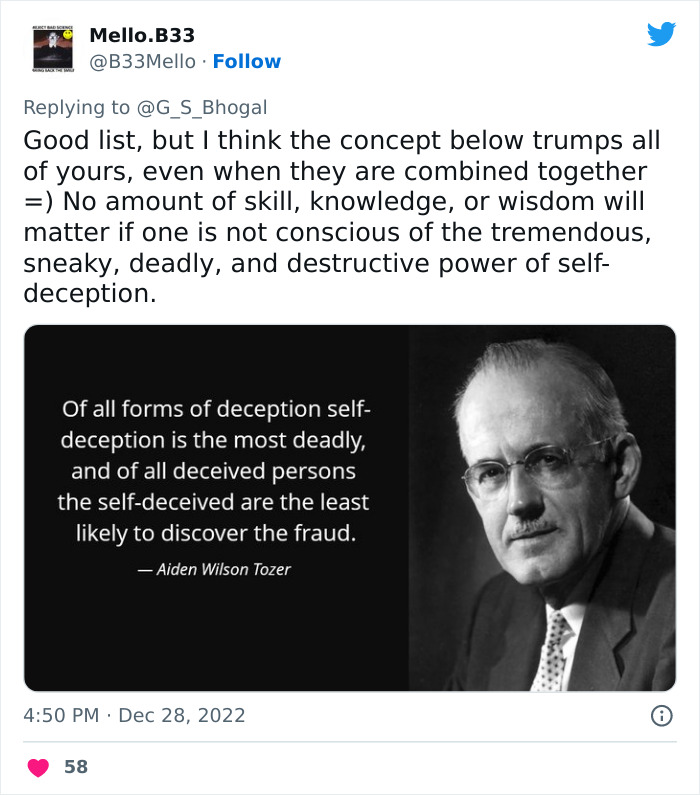
Aiden Wilson Tozer Quote: "Of all forms of deception self-deception is the most deadly, and of all deceived persons the self-deceived are the least likely to discover the fraud. . . . . . . . . . . . . . . . . . . . . . . . . . . . . . . . . . . . . . . . . . . . . . . . . . . . . . . . . . . . . . . . . . . . . . . . . . . . . . . . . . . . . . . . . . . . . . . . . . . . . . . . . . . . . . . . . . . . . . . . . . . . . . . . . . Experiments demolish self-deception. This is why scientists (not technicians, or, naturalists whose work is based on memorization) like the surprise of having their hypothesis proved wrong -- otherwise experimentation would be boring and tedious if it always proved what was already known. . . . . . . . . . . . . . . . Science has made this the best time to be a human and demolishing self deception is why Science is so powerful and why it should be a strong voice when it comes to determining policy.
my two favorites are the Peter principle where In a hierarchy, every employee tends to rise to his level of incompetence and the Dunning-Kruger effect whereby people with low ability, expertise, or experience regarding a certain type of task or area of knowledge tend to overestimate their ability or knowledge
And vice versa! A lot of BS goes unopposed because the people who know it isn't true can't exactly tell you why, and decide to shut up.
Load More Replies...How about Cole's Axiom: The sum of intelligence on the planet is a constant. The population is growing.
Aiden Wilson Tozer Quote: "Of all forms of deception self-deception is the most deadly, and of all deceived persons the self-deceived are the least likely to discover the fraud. . . . . . . . . . . . . . . . . . . . . . . . . . . . . . . . . . . . . . . . . . . . . . . . . . . . . . . . . . . . . . . . . . . . . . . . . . . . . . . . . . . . . . . . . . . . . . . . . . . . . . . . . . . . . . . . . . . . . . . . . . . . . . . . . . Experiments demolish self-deception. This is why scientists (not technicians, or, naturalists whose work is based on memorization) like the surprise of having their hypothesis proved wrong -- otherwise experimentation would be boring and tedious if it always proved what was already known. . . . . . . . . . . . . . . . Science has made this the best time to be a human and demolishing self deception is why Science is so powerful and why it should be a strong voice when it comes to determining policy.
my two favorites are the Peter principle where In a hierarchy, every employee tends to rise to his level of incompetence and the Dunning-Kruger effect whereby people with low ability, expertise, or experience regarding a certain type of task or area of knowledge tend to overestimate their ability or knowledge
And vice versa! A lot of BS goes unopposed because the people who know it isn't true can't exactly tell you why, and decide to shut up.
Load More Replies...How about Cole's Axiom: The sum of intelligence on the planet is a constant. The population is growing.

 Dark Mode
Dark Mode  No fees, cancel anytime
No fees, cancel anytime 




